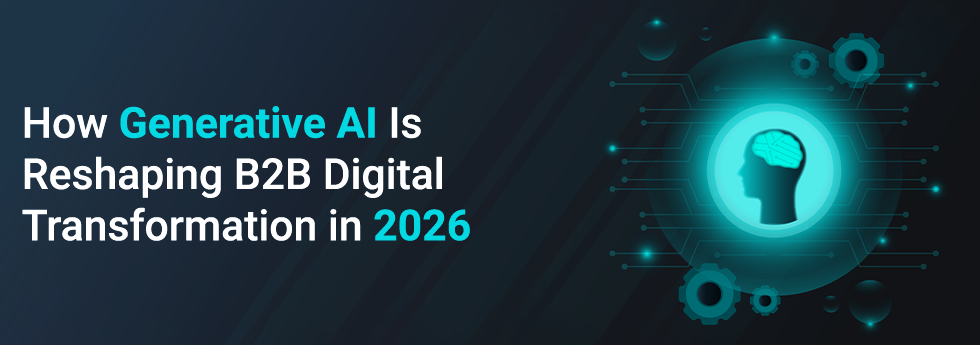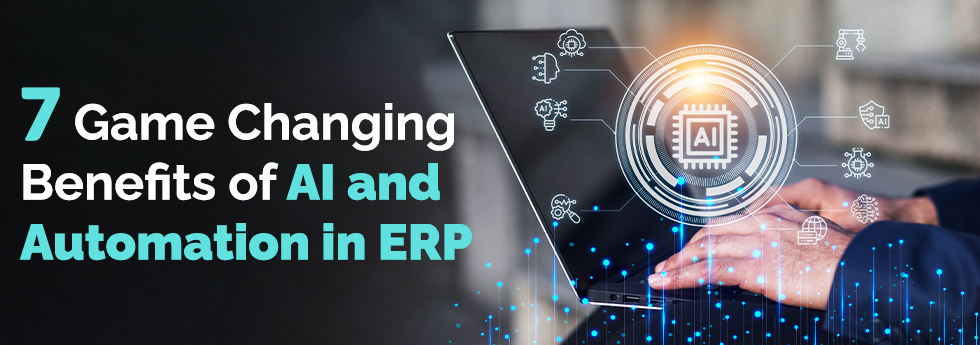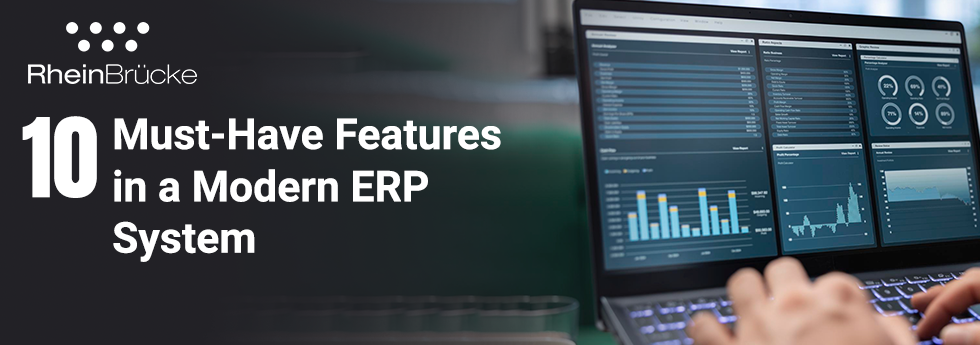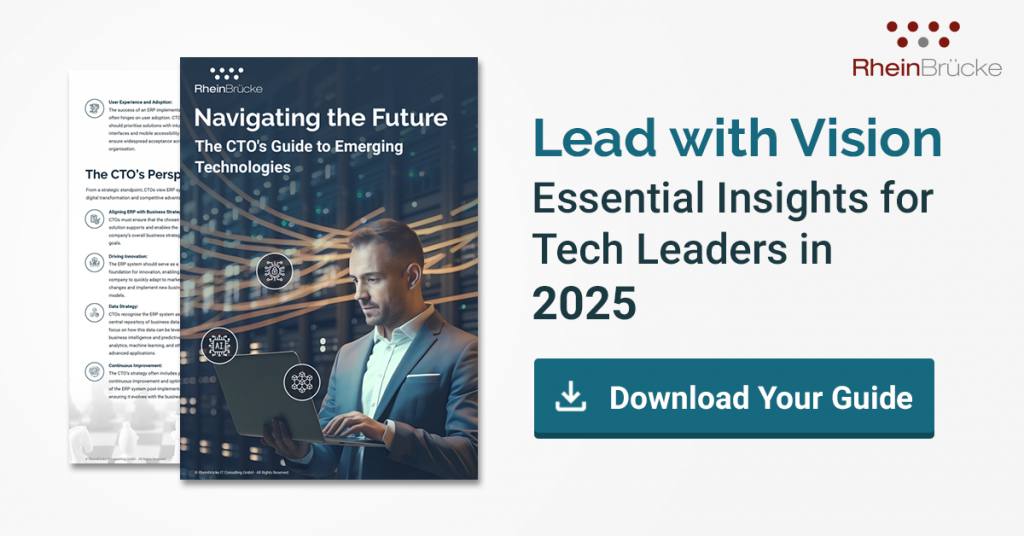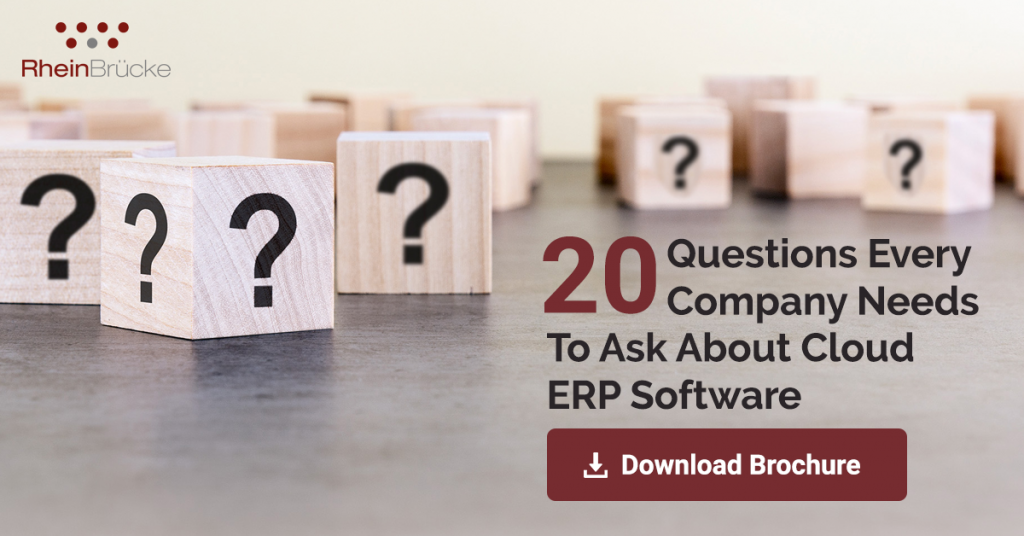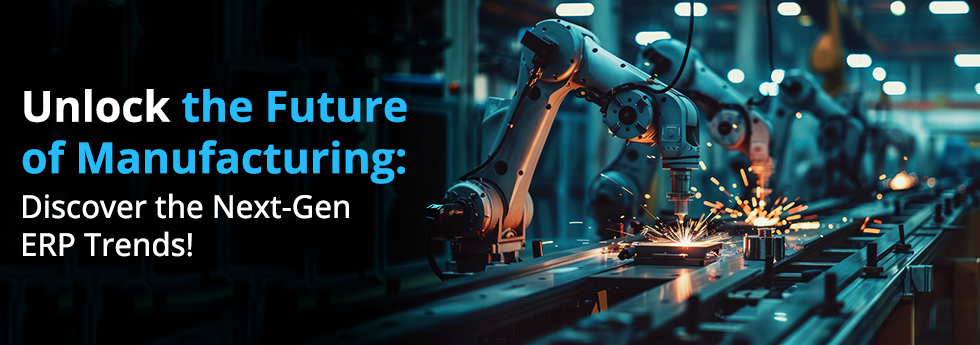
In the fast-evolving world of enterprise technology, the landscape of ERP software for the manufacturing industry is set to undergo transformative changes by 2025. As businesses seek efficiency, adaptability, and a competitive edge, staying ahead of ERP trends is crucial. This article explores the key trends and innovations that will shape ERP systems by 2025, offering invaluable insights for businesses looking to stay competitive
The Future Is Here: How AI and ML Are Elevating ERP to New Heights
Artificial Intelligence (AI) and Machine Learning (ML) are changing how ERP systems function. By 2025, we can expect widespread adoption of AI-powered ERP systems, enabling predictive analytics, automation, and better decision-making. For ERP software in the manufacturing industry, AI advancements will drastically improve production efficiency, quality control, and security through intelligent anomaly detection.
Moreover, AI-driven chatbots and virtual assistants will streamline workflows by automating routine tasks and offering real-time support. This frees up valuable time for employees to focus on strategic initiatives.
Sky’s the Limit: How Cloud ERP Solution Is Revolutionizing Business Operations
Cloud ERP solutions are increasingly becoming the go-to choice, offering scalability, cost efficiency, and real-time access to data. By 2025, on-premise ERP systems will likely become the exception. Cloud-based ERP systems will also facilitate better integration with other services, creating a unified ecosystem that enhances business operations.
For companies using ERP software for manufacturing, cloud ERP solutions offer the ability to share real-time data across multiple production sites, significantly improving coordination, productivity, and scalability.
Mobile ERP – Must-Have Tool for 2025
Mobile-friendly ERP systems are no longer a luxury—they’re a necessity. With mobile ERP accessibility trends gaining traction, executives and employees can make informed decisions on the go. This is especially crucial for industries like manufacturing and logistics, where real-time access to ERP systems can optimize operations.
As mobile technology advances, ERP vendors will prioritize mobile-friendly interfaces, enabling quicker decision-making and increased productivity.
The IoT-ERP Connection in 2025
ERP systems will further integrate with Internet of Things (IoT) devices and social media platforms to automate processes and provide greater visibility and customer experience. IoT integration will enable real-time tracking of shipments, inventory, and environmental conditions, optimizing logistics and reducing costs. For those using ERP software for manufacturing industry”, IoT integration can significantly enhance process monitoring and control. This level of visibility allows businesses to respond swiftly to any disruptions.
Beyond Basics: Customized ERP Solutions Are the Future of Business
By 2025, ERP systems will increasingly integrate with IoT devices to offer real-time visibility into operations. This is particularly relevant for ERP software in manufacturing, where IoT-enabled devices can track shipments, monitor inventory, and improve process control. For example, real-time tracking of production lines through IoT sensors can significantly reduce downtime and enhance operational efficiency.
Modernized User Interface (UX)
Younger, tech-savvy employees expect user-friendly interfaces. By 2025, we’ll see ERP systems with enhanced user experiences, improving both user adoption and operational efficiency.
Expected Benefits for Individuals and Customers
For Individuals: Enhanced user interfaces and AI-driven insights will make ERP systems more intuitive and easier to use, reducing the learning curve and increasing productivity.
For Customers: Advanced integration and data analytics will lead to better customer service, allowing businesses to respond faster to changing market needs.
Challenges and Future Innovations in ERP Systems:

1.High Implementation Costs:
The initial investment in ERP systems can be significant.
Future Solution:
Cloud-based ERP systems will reduce these costs by offering more affordable, scalable solutions that require less upfront investment.
2.Complexity and User Adoption:
Traditional ERP systems can be difficult for employees to adopt.
Future Solution:
Enhanced UX and more intuitive interfaces will make ERP systems easier to use, improving user adoption and efficiency.
3.Integration Issues:
IntegratingERP systems with existing software and processes can be challenging.
Future Solution:
Future ERP systems will offer better integration capabilities with IoT devices and other technologies, streamlining processes and reducing integration challenges.
4.Security Concerns:
As ERP systems handle sensitive data, security is a major concern.
Future Solution:
Advanced security features and compliance with global standards will be integral to future ERP systems, ensuring data protection and regulatory compliance.
Understanding these trends in ERP software for the manufacturing industry is key to staying competitive in a fast-evolving global market. Partnering with an experienced ERP consultant like RheinBrücke ensures a smooth transition and successful integration of these future innovations.
Ready to transform your business with Epicor ERP? Contact RheinBrücke today to stay ahead of the curve in 2025 and beyond.

